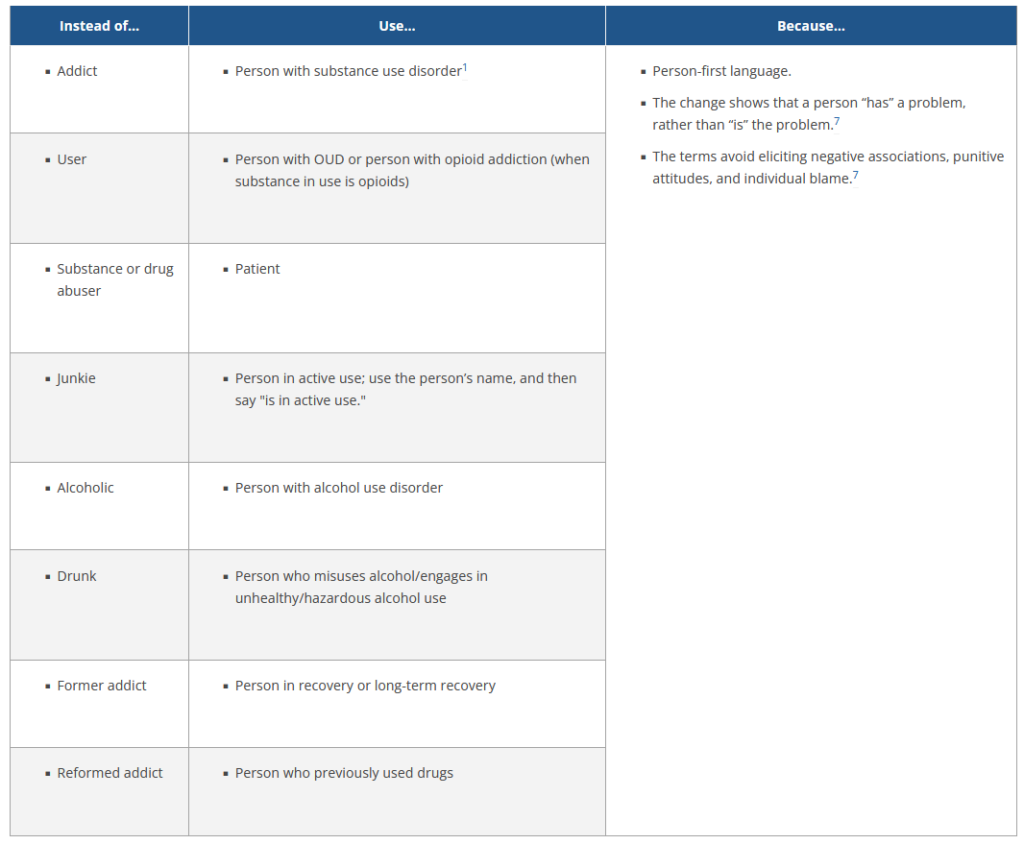Recognizing and overcoming addiction is a journey that begins with the acknowledgment of the problem. Often, the signs of alcohol addiction become apparent either in oneself or in someone close. The realization of addiction is a critical first step towards healing.
When addiction, be it physical or psychological, to alcohol is acknowledged, it becomes imperative to seek professional help. This is where the journey of recovery begins, a path often laden with challenges but also with the promise of a healthier, more fulfilling life.

The Impact of Stigma on People with SUD
Stigma surrounding addiction can deeply affect those with SUDs in various ways:
- Reduced Willingness to Seek Treatment: Stigma can make individuals with SUDs hesitant to seek the help they need.
- Stereotyping: Common stigmatizing views lead to feelings of pity, fear, anger, and a desire for social distance from those with an SUD.
- Influence on Healthcare Providers: Stigmatizing language can also impact the perceptions of healthcare providers, potentially affecting the quality of care provided to people with SUDs.
- Changing Stigmatizing Behaviors.
To combat these negative effects, a change in behavior and language is essential:
- Use Non-Stigmatizing Language: Whether speaking with individuals with SUDs, their loved ones, or colleagues, it’s important to use language that reflects a scientific understanding of SUDs and avoids stigma.
- Role of Health Professionals: As often the first point of contact, health professionals should actively work to reduce stigma and bias, starting with the language they use.
- Adopt Person-First Language: This approach maintains the integrity of individuals by not defining them by their condition. For example, using “person with a substance use disorder” instead of labels like “addict.”
- The Importance of Precise Language in Treatment: When discussing treatment options, it’s recommended to use terms like “substance use” for all substances, including alcohol and drugs, and to specify the severity of the SUD. This not only ensures accurate clinical assessment but also aids in developing effective treatment plans. Avoiding terms like “intervention” and instead using evidence-based language can also make a significant difference in how treatment is perceived and received.
The Role of Language in Addressing Addiction
The way we talk about addiction can significantly influence both the perception and the treatment of those experiencing it. Using empathetic, non-stigmatizing language is key. Describing someone as a ‘person struggling with alcohol addiction’ rather than an ‘alcoholic’ can help in shifting focus from the condition to the individual, underscoring their humanity and potential for recovery.
Consider using these recommended terms to reduce stigma and negative bias when talking about addiction.
Privacy and Comfort in Recovery
Each person’s journey through addiction is unique, necessitating personalized treatment plans. This is where facilities like Hathaway Recovery play a pivotal role. They offer evidence-based therapies such as behavioral and experiential therapy, tailored to individual needs. Their holistic approach not only treats the addiction but also aids in personal growth and a fresh start in life.
At Hathaway Recovery, the focus is on providing a serene and comfortable environment conducive to healing. The center prides itself on its luxurious facilities, ensuring privacy and comfort. Staffed by compassionate professionals, Hathaway Recovery offers round-the-clock assistance to support you through every step of your journey.
For anyone struggling with addiction, Hathaway Recovery extends a helping hand. With their commitment to renewing and rebuilding lives, they offer a chance for a new beginning. Confidential assistance is available through their Admission Department at (909-971-3333).






